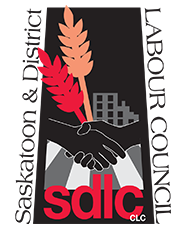We understand you may have questions about bargaining.
Find answers to what you're wondering about.
If you have questions related to the the tentative agreement and the ratification process, please log in to the member portal.
Bargaining Basics
A collective bargaining agreement is a contract negotiated between elected union representatives and employers. This is not a union book or an employer book – it is a collective agreement that belongs to both parties and outlines the terms and conditions of employment, such as wages, hours of work, benefits, etc.
SGEU members are grouped together into different bargaining units. A bargaining unit consists of all workers who are under the same collective agreement. SGEU’s bargaining units range in size from a few members to 11,000+ members. The Public Service/Government Employment (PS/GE) is the largest bargaining unit in SGEU. Its members work in many different occupations.
There are six sectors within SGEU. They are the Public Service Sector; the Crown Sector; the Health Sector; the Education Sector; the Community Services Sector; and the Retail Regulatory Sector. Members of the Public Service/Government Employment (PS/GE) bargaining unit are part of the Public Service Sector.
Almost all in-scope employees who work directly for a provincial ministry or agency are part of PS/GE. Article 2 of the PS/GE collective bargaining agreement lists the workplaces whose employees are a part of PS/GE.
Impasse
An impasse is the point where there is nothing left to discuss at the bargaining table because both sides have decided they cannot make any further compromises. Anything that the PS/GE negotiating committee can agree to has been agreed to and there is no movement on any remaining proposals. When we reach impasse, we need to serve formal impasse notice to the employer and the Minister of Labour. We officially served that notice on February 7, 2024.
Your negotiating committee’s main goal is to negotiate a fair contract. A strike is one tool we can use to help us accomplish that goal. However, a strike is always our last resort. At this point, we remain hopeful that the mediation process will help us come to an agreement.
If mediation fails to result in a suitable agreement, your negotiating committee may request a strike vote to members to know whether you are open to going on strike to help achieve your goals. All PS/GE members are entitled to vote on whether they want the bargaining unit to adopt a strike mandate.
The Saskatchewan Employment Act describes the steps that must be followed after an impasse is reached.
Now that we’ve filed notice of impasse, the Labour Board will appoint mediators or conciliators to help the union and the employer come to an agreement. These are neutral third parties that will help facilitate the discussion and they may provide recommendations on what a final collective bargaining agreement should look like. Neither party is obligated to take their suggestions.
At the same time, we are continuing to negotiate an essential services agreement with the employer. This is an incredibly time-consuming process that requires us to look at the duties of our 11,000+ members and determine whether the interruption of these duties would endanger the lives, personal safety or health of the whole or half of the population.
Some of this work was done in our last round of negotiations in 2018.
Download a flow chart that summarizes some of the Essential Services Agreement process.
Note: This flow chart is not intended to provide legal advice. The process is subject to change.
Mediation/Arbitration
Mediation is a process where a neutral third party, known as a mediator, helps the parties involved in a dispute to come to an agreement. If one of the parties declares that they cannot reach an agreement, the Minister of Labour Relations assigns a mediator to help. The mediator's recommendations are not legally binding.
Arbitration is an alternative dispute resolution process where the parties involved in a dispute agree to submit their dispute to an arbitrator or an arbitral tribunal, either before or after a dispute has arisen. Ultimately, the decision made by the arbitrator, called an "award," is legally binding.
Job Action/Strike
If the mediation process does not result in a recommendation that is accepted by both parties, a strike and/or lockout is possible. Before we can initiate a strike, we must negotiate an essential services agreement with the employer. We also need to hold a strike vote to authorize any job action.
Negotiations
September 30, 2022
Public service bargaining is a lengthy process. PS/GE and the employer started out with a list of 235 proposals that we have successfully narrowed down to 27. The employer has also cancelled and rescheduled numerous meeting dates, making negotiations very slow.
Now that we’ve reached impasse, the Saskatchewan Employment Act lays out a number of steps we must follow to try to come to an agreement. Each step will take time, especially the negotiation of an essential services agreement, which entails us looking at the duties of thousands of members.
Unfortunately, the process is designed this way to undermine our ability to quickly mobilize members. We ask for your patience and involvement as we navigate the next steps.
We are unable to come to an agreement in the following main areas:
- Time in lieu of overtime (TIL)
- Wages
- Pension contributions
- Weekend premiums and shift differentials
- Class plan review
- Job competition language
- Mental health days
- Pandemic premium
We are asking for wages to keep pace with the cost of living. Our proposal asks for 9 per cent, 6 per cent and increases tied directly to Saskatchewan’s Consumer Price Index (CPI) going forward.
The employer’s initial offer was 6 per cent over three years (2%, 2%, 2%). However, after negotiations with the Saskatchewan Teachers’ Federation, the employer revised their offer to 7 per cent over three years (3%, 2%, 2%).
Stay Connected
If you have questions, please contact your local’s bargaining representative or email psgenegotiations@sgeu.org.
Stay up to date with bargaining
Ensure we have your current personal email address on file, read all bargaining communications, and reach out to psgenegotiations@sgeu.org with any questions you may have.
Spread the word
Chat with coworkers who may not be familiar with the bargaining process and encourage them to get involved. Follow SGEU’s pages on social media to boost posts related to PS/GE bargaining.
Sign up to be contacted about volunteer opportunities
As we move forward in the bargaining process, we may be looking for volunteers to help mobilize members. Please contact psgenegotiating@sgeu.org if you are interested in getting involved.
If you are not receiving bargaining updates, please ensure we have your current personal email address on file.
To update your personal contact information, please complete the online form, contact MIS by email at mis@sgeu.org or phone our office toll free at 1-800-667-5221.
Past bargaining reports are available on our website.





